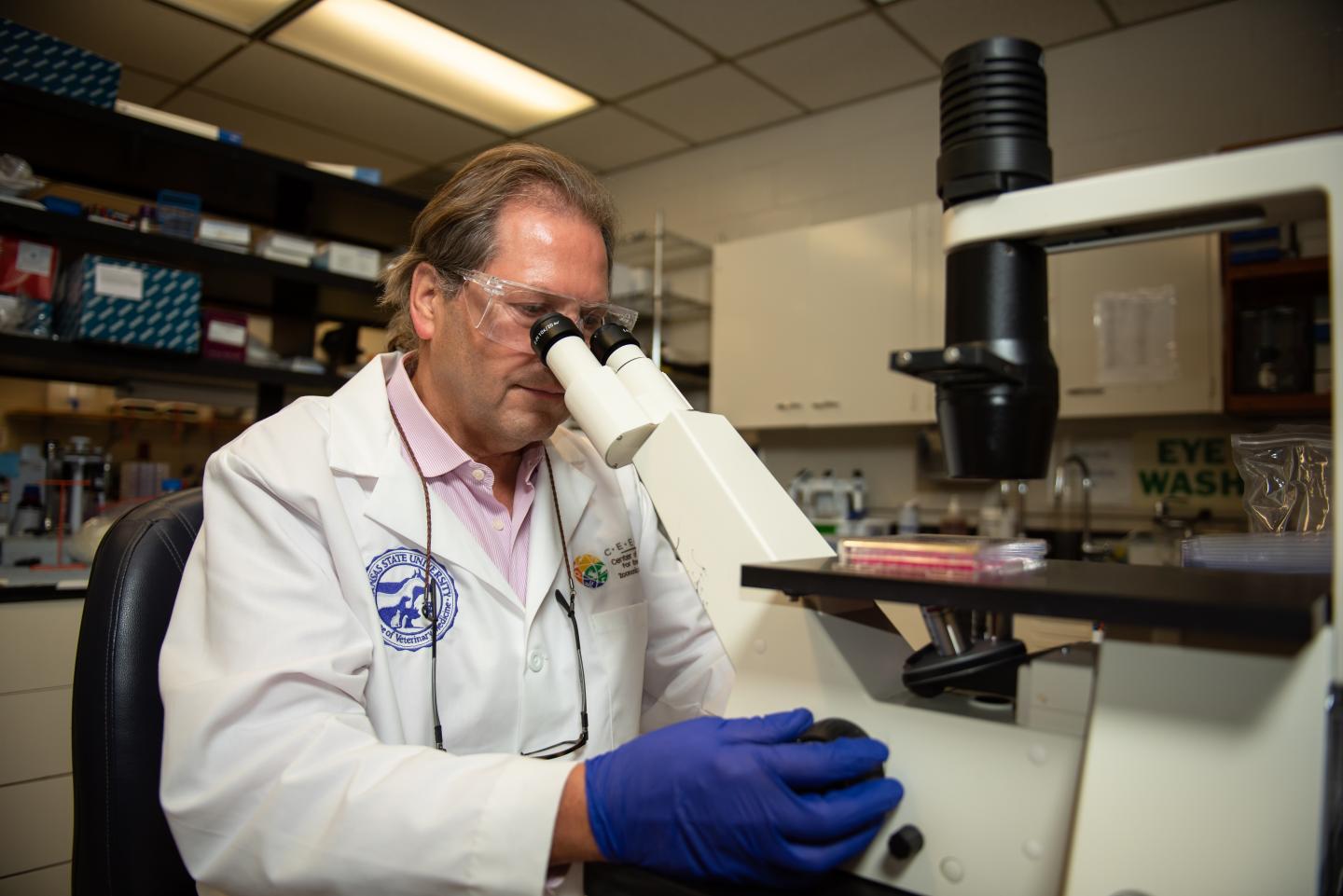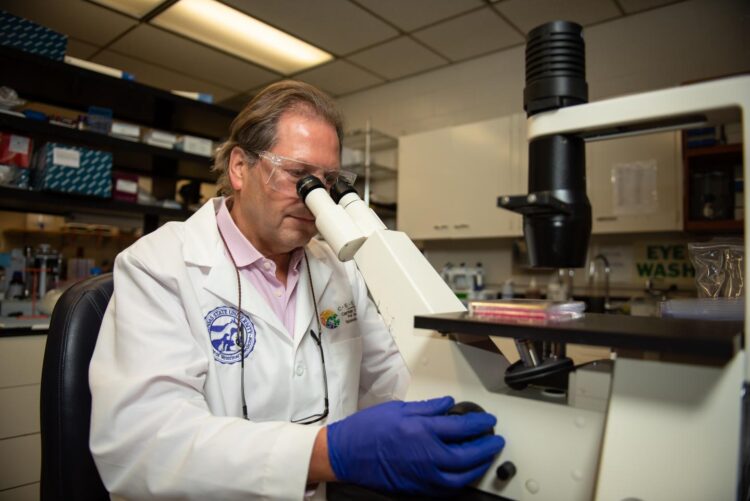
Credit: Kansas State University
MANHATTAN, KANSAS — Two recently published studies from Kansas State University researchers and collaborators have led to two important findings related to the COVID-19 pandemic: Domestic cats can be asymptomatic carriers of SARS-CoV-2, but pigs are unlikely to be significant carriers of the virus. SARS-CoV-2 is the coronavirus responsible for COVID-19.
“Other research has shown that COVID-19-infected human patients are transmitting SARS-CoV-2 to cats; this includes domestic cats and even large cats, such as lions and tigers,” said Jürgen A. Richt, the Regents distinguished professor at Kansas State University in the College of Veterinary Medicine. “Our findings are important because of the close association between humans and companion animals.”
There are about 95 million house cats in the U.S. and about 60 million to 100 million feral cats, Richt said.
Richt is the senior author on the two recent collaborative publications in the journal Emerging Microbes & Infections: “SARS-CoV-2 infection, disease and transmission in domestic cats” and “Susceptibility of swine cells and domestic pigs to SARS-CoV-2.”
Through their in-depth study at the K-State Biosecurity Research Institute, or BRI, at Pat Roberts Hall, the researchers studied susceptibility to infection, disease and transmission in domestic cats. They found that domestic cats may not have obvious clinical signs of SARS-CoV-2, but they still shed the virus through their nasal, oral and rectal cavities and can spread it efficiently to other cats within two days. Further research is needed to study whether domestic cats can spread the virus to other animals and humans.
“This efficient transmission between domestic cats indicates a significant animal and public health need to investigate a potential human-cat-human transmission chain,” said Richt, who is also the director of the university’s Center of Excellence for Emerging and Zoonotic Animal Diseases, known as CEEZAD, and the Center on Emerging and Zoonotic Infectious Diseases, known as CEZID.
For the study involving pigs, the researchers found that SARS-CoV-2-infected pigs are not susceptible to SARS-CoV-2 infection and do not appear to transmit the virus to contact animals.
“Pigs play an important role in U.S. agriculture, which made it important to determine the potential SARS-CoV-2 susceptibility in pigs,” Richt said. “Our results show that pigs are unlikely to be significant carriers of SARS-CoV-2.”
The BRI has provided the high-security laboratories for Richt and collaborators to study SARS-CoV-2. It is a biosafety level-3 and biosafety level-3 agriculture facility that houses important multidisciplinary research, training and educational programs on pathogens that affect animals, plants and insects, as well as food safety and security.
Richt and his collaborators plan further studies to understand SARS-CoV-2 transmission in cats and pigs. They also plan to study whether cats are immune to SARS-CoV-2 reinfection after they have recovered from a primary SARS-CoV-2 infection.
“This research is important for risk assessment, implementing mitigation strategies, addressing animal welfare issues, and to develop preclinical animal models for evaluating drug and vaccine candidates for COVID-19,” Richt said.
###
The research has involved other K-State researchers from the department of diagnostic medicine and pathobiology in the College of Veterinary Medicine: Natasha N. Gaudreault, Jessie D. Trujillo, David A. Meekins, Igor Morozov, Daniel W. Madden, Sabarish V. Indran, Dashzeveg Bold, Velmurugan Balaraman, Taeyong Kwon, Bianca L. Artiaga, Konner Cool, Wenjun Ma and Jamie Henningson, also director of the Kansas State Veterinary Diagnostic Laboratory.
Other researchers involved include Mariano Carossino and Udeni B. R. Balasuriya from Louisiana State University; William C. Wilson with the U.S, Department of Agriculture’s Arthropod-Borne Animal Disease Research Unit; Adolfo García-Sastre with Icahn School of Medicine at Mount Sinai; and Heinz Feldmann with the National Institutes of Health’s National Institute of Allergy and Infectious Diseases.
Media Contact
Jennifer Tidball
[email protected]
Original Source
https:/
Related Journal Article
http://dx.





